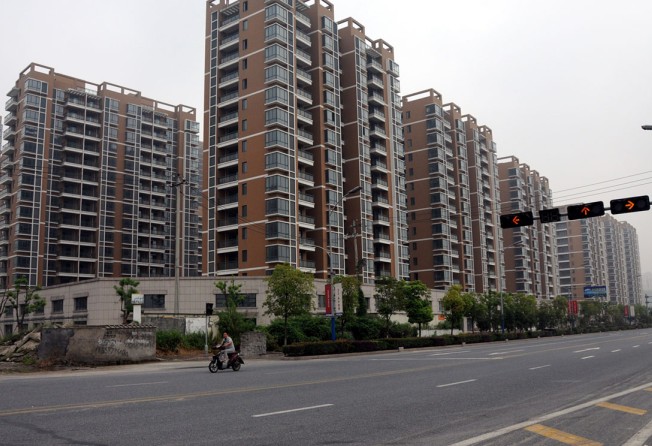
Government's affordable home drive protects mainland China jobs
Beijing's investment in cheap housing prevents large job losses in fragile private sector

The downturn in the private real estate market continues to weigh on the mainland's economic growth, but hundreds of billions of yuan being invested in government-backed affordable homes is keeping the job market afloat, giving policymakers some wiggle room to push ahead with crucial reforms.

But they have kept up the tight lending pressure on developers of private property projects, pushing a rising number of small players to the verge of bankruptcy.
"Central government authorities are not especially concerned about defaults, bankruptcies, and liquidations among private developers, construction companies, and other residential real estate-related companies that made fat profit margins during the housing boom," research firm JL Warren Capital said in a report.
"This correction can take place without a socially destabilising increase in unemployment, provided that the central government makes available, directly or indirectly, the financial means to boost social and affordable housing construction," it added.
Job demand in the property sector rose 10.6 per cent in the second quarter from a year earlier, although it was down 10.1 per cent from the first quarter, according to a report by the Ministry of Human Resources and Social Security.
The mainland's housing market started to falter in late February when two developers in Hangzhou, Zhejiang province slashed prices to boost sales. The trend soon spread nationwide in a pace that surprised many developers.
Economists estimate that the property sector contributes about 25 per cent to the mainland's gross domestic product, considering its impact on over 40 other sectors, including metals, cement, furniture and home appliances.
Growth in the world's second-largest economy picked up to 7.5 per cent in the second quarter on the back of the government's mini-stimulus measures, up from 7.4 per cent - an 18-month low - in the first quarter.
Tian Shuchen, vice-president and senior engineer of China State Construction International, told the South China Morning Post that government spending on affordable homes more than made up for the job losses caused by the slowdown in the private real estate market.
"We are short of construction workers, and the construction sector is still booming," Tian said. "Private property construction slowed a bit, but government projects increased a lot."
The largest Hong Kong-listed construction contractor reported that its contracts from affordable housing projects grew 36.1 per cent year on year in the first eight months to HK$14.47 billion, or a third of the company's total during the period.
That tracks the pace of increase in China's investment in projects to help poor families who have been pushed out of the market by record high home prices, although prices are now slowly edging downwards this year due to oversupply.
The mainland invested 850 billion yuan (HK$1 trillion) in affordable housing projects in the first seven months, up 37 per cent from a year earlier, according to data from the Ministry of Housing and Urban-Rural Development. That compared with a year-on-year dip of 6 per cent in the first seven months of 2013.
And the number could top one trillion yuan this year, as authorities aim to get 4.8 million affordable homes ready for delivery in 2014 and break ground for seven million new units. In the first seven months, 84 per cent of the first target was achieved and 70 per cent of the second.
Separately, another set of data from the National Bureau of Statistics showed growth in China's headline real estate investment decelerated to 13.7 per cent in the first seven months from a year earlier to five trillion yuan, slowing from a year-on-year growth of 20.5 per cent in the January-July period of 2013.